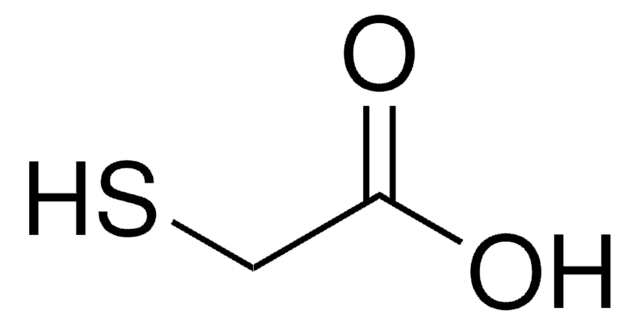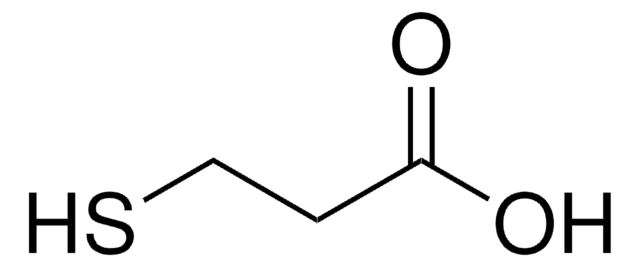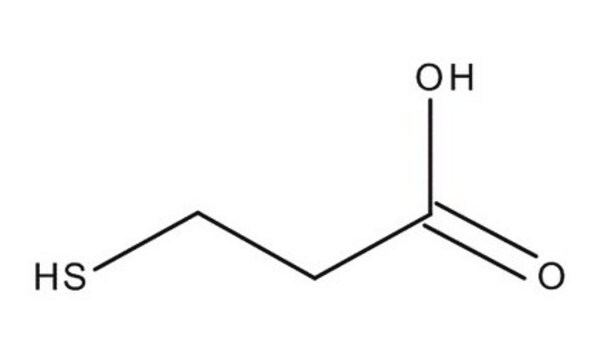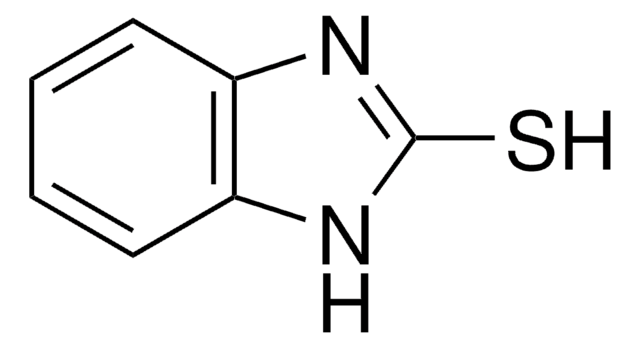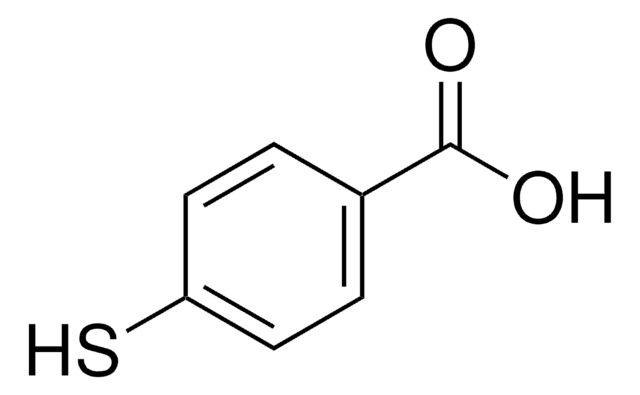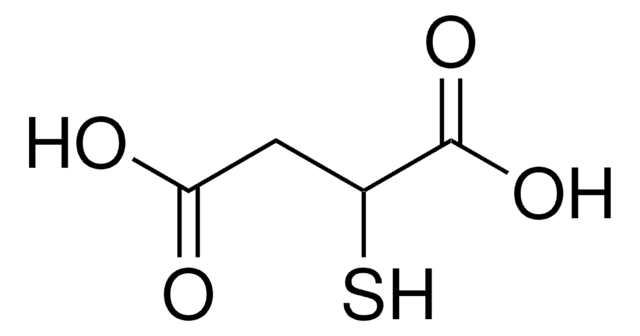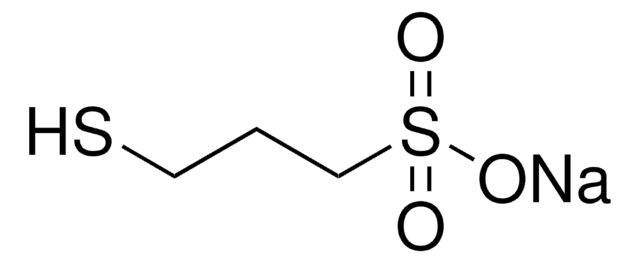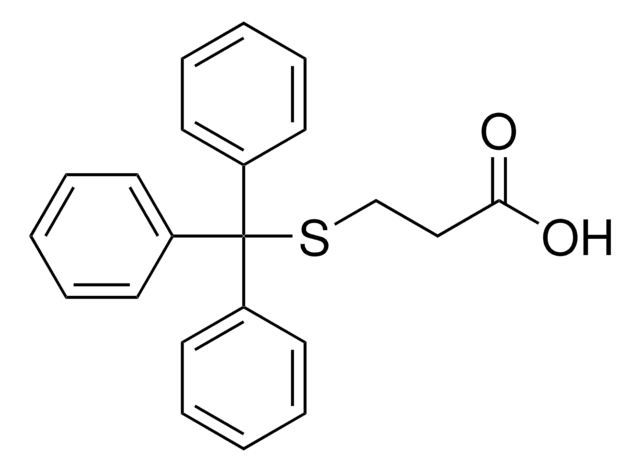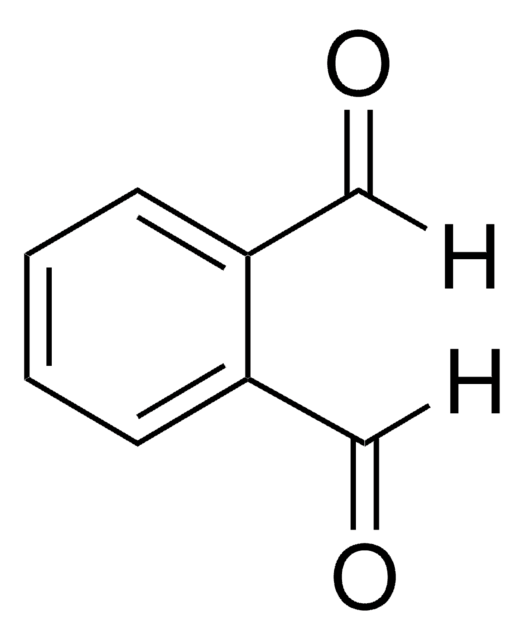M5801
3-Mercaptopropionic acid
≥99%
Synonyme(s) :
3-sulfanylpropanoic acid
About This Item
Produits recommandés
Pression de vapeur
0.04 mmHg ( 20 °C)
Niveau de qualité
Essai
≥99%
Forme
liquid
Température d'inflammation spontanée
662 °F
Indice de réfraction
n20/D 1.492 (lit.)
pb
110-111 °C/15 mmHg (lit.)
Pf
15-18 °C (lit.)
Densité
1.218 g/mL at 25 °C (lit.)
Chaîne SMILES
OC(=O)CCS
InChI
1S/C3H6O2S/c4-3(5)1-2-6/h6H,1-2H2,(H,4,5)
Clé InChI
DKIDEFUBRARXTE-UHFFFAOYSA-N
Vous recherchez des produits similaires ? Visite Guide de comparaison des produits
Description générale
Application
Mention d'avertissement
Danger
Mentions de danger
Classification des risques
Acute Tox. 3 Oral - Acute Tox. 4 Inhalation - Eye Dam. 1 - Met. Corr. 1 - Skin Corr. 1B
Code de la classe de stockage
6.1A - Combustible acute toxic Cat. 1 and 2 / very toxic hazardous materials
Classe de danger pour l'eau (WGK)
WGK 1
Point d'éclair (°F)
200.1 °F - closed cup
Point d'éclair (°C)
93.4 °C - closed cup
Équipement de protection individuelle
Faceshields, Gloves, Goggles, type ABEK (EN14387) respirator filter
Faites votre choix parmi les versions les plus récentes :
Certificats d'analyse (COA)
Vous ne trouvez pas la bonne version ?
Si vous avez besoin d'une version particulière, vous pouvez rechercher un certificat spécifique par le numéro de lot.
Déjà en possession de ce produit ?
Retrouvez la documentation relative aux produits que vous avez récemment achetés dans la Bibliothèque de documents.
Les clients ont également consulté
Articles
Professor Aran (Claremont University, USA) thoroughly discusses the engineering of graphene based materials through careful functionalization of graphene oxide, a solution processable form of graphene.
Notre équipe de scientifiques dispose d'une expérience dans tous les secteurs de la recherche, notamment en sciences de la vie, science des matériaux, synthèse chimique, chromatographie, analyse et dans de nombreux autres domaines..
Contacter notre Service technique

